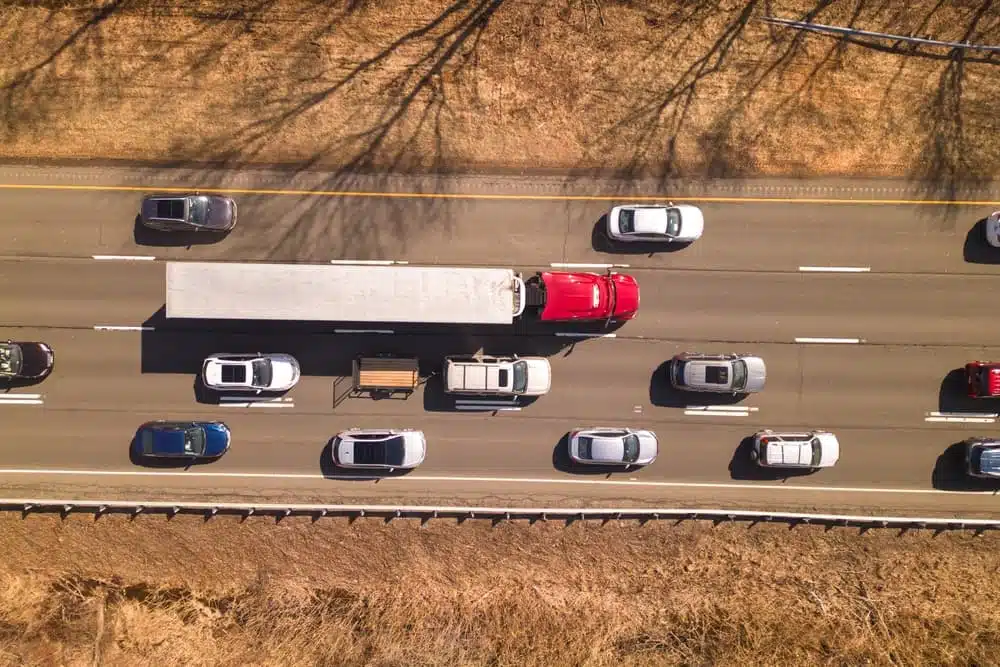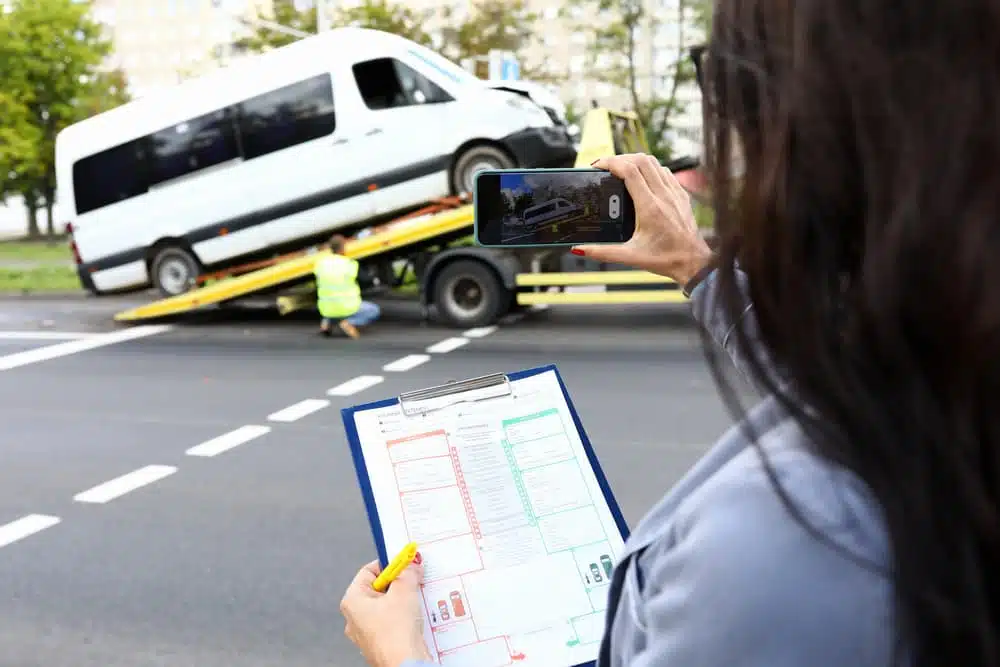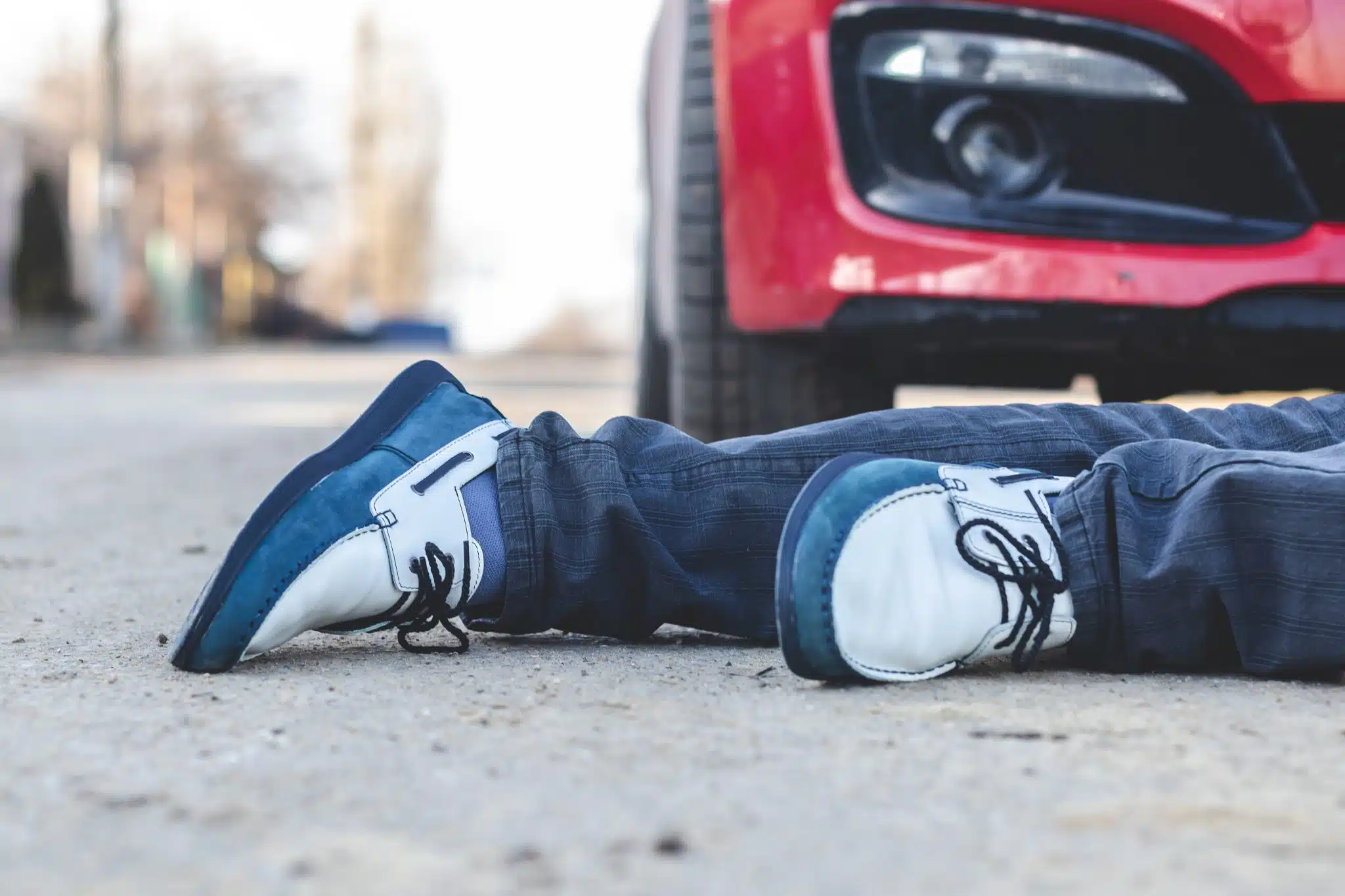
A passenger vehicle can crash with a massive 80,000-pound semi-truck barreling down the highway with catastrophic results. The occupants of the smaller vehicle may suffer devastating injuries such as traumatic brain injury, spinal cord damage, crushed or amputated limbs, severe burns, or internal organ damage.
Some truck accident victims face a lifetime of disability, chronic pain, and astronomical medical bills. Others tragically lose their lives, leaving behind grieving families struggling to cope with the sudden loss of a loved one.
In the chaotic aftermath of a truck accident, victims may feel overwhelmed and unsure where to turn. On top of trying to recover from serious injuries, you may face mounting medical expenses while you cannot work. The thought of taking on a complex legal battle against a trucking company and its insurers can seem daunting.
But after a crash with a commercial truck, you have rights and options. You may recover substantial compensation for all the ways the accident has affected your life.
However, the process of filing a truck accident claim and securing a fair settlement can involve fighting trucking companies. Their insurers’ lawyers will look for ways to minimize payouts.
To level the playing field and ensure you receive the full compensation you deserve, hire an experienced New York City truck accident lawyer advocating for you.
While no amount of money can erase the trauma of a serious crash, a successful truck accident claim can provide vital resources to rebuild your life and move forward.
The Truck Accident Claim Process
The complex and time-consuming process of filing a claim and securing a fair settlement after a truck accident can involve many key steps. Hiring an experienced truck accident lawyer can significantly improve your chances of a successful outcome.
Step 1: Seek Medical Attention
The first priority after any motor vehicle accident is to get the medical care you need. Call 911 if anyone is seriously injured.
Even if you don’t think it hurt you, get checked out by a doctor as soon as possible after the crash. Some injuries may not present symptoms right away. Prompt medical attention will diagnose, treat, and document your injuries. You need this documentation for your truck accident claim.
Step 2: Report the Accident
Call the police to come to the scene of the truck accident if they have not arrived already. Cooperate with the investigating officers and answer their questions honestly, but avoid admitting fault or apologizing for the crash, as they can use this against you.
Obtain a copy of the police accident report when it becomes available, as it can provide key details and contact information.
Step 3: Gather Evidence
If you can do so safely, collect as much evidence as possible at the accident scene:
- Take photos of the damage to all vehicles involved, their positioning, skid marks, and road and weather conditions
- Get the name and insurance details of the truck driver
- Write down the trucking company name, truck license plate, and USDOT number
- Ask any eyewitnesses for their names and contact information
- Keep the clothing you were wearing in case it was torn or blood-stained
Preserving this evidence soon after the crash can significantly strengthen your truck accident claim, especially if the trucking company later tries to dispute liability.
Step 4: Notify Your Insurance Company
Call your auto insurance company to report the truck accident. Most insurers require prompt notification of crashes. However, provide only the basic facts of what happened. Do not give a recorded statement, guess about what happened, or accept any fault. Stick to the facts only.
Step 5: Be Cautious in Dealing with the Trucking Company’s Insurer
After a truck accident, a representative from the trucking company’s insurer may contact you seeking a statement about the crash or pushing you to accept a quick settlement offer. Exercise caution in these interactions.
Politely decline to provide a recorded statement, as the insurer can use this against you later. Refer them to your lawyer instead.
Caution: Don’t Accept the First Settlement Offer Without Consulting a Lawyer
Do not accept a settlement without first speaking to an experienced truck accident attorney and protect yourself from:
- Lowball offers: Initial settlement offers are often far below the true value of your claim. Insurance companies are for-profit businesses, so they will try to minimize payouts to protect their bottom line. They may make a quick, lowball offer in hopes that you’ll accept it before realizing the full extent of your damages.
- Incomplete picture of damages: In the immediate aftermath of a truck accident, you may not yet know the full scope of your injuries and losses. Some injuries may take time to manifest symptoms or require ongoing treatment. If you accept a settlement too early, you may lack compensation for future medical expenses, lost earning capacity, and pain and suffering.
- Waiving legal rights: Accepting a settlement offer almost always requires signing a release that waives your right to pursue any further compensation related to the accident, even if your damages end up being much greater than initially thought. The insurer wants to resolve your claim as cheaply as possible and preclude future liability.
- Lack of negotiating leverage: If you take the first offer, you lose any bargaining power to negotiate for a higher settlement that fully covers your damages. Insurers expect claimants to counteroffer and build that expectation into their initial offers.
- Lack of legal counsel: Truck accident cases are complex, often involving multiple liable parties, trucking industry regulations, and high-dollar damages. Insurers count on unrepresented claimants lacking the knowledge to evaluate offers properly. Having an experienced attorney value your claim and handle negotiations can result in significantly higher settlements.
Instead of accepting a first offer, consult a skilled truck accident lawyer who can assess what your case is truly worth and fight for every dollar you deserve. Experienced attorneys understand the tactics insurers use to minimize payouts and know how to determine the full, long-term impact the crash will have on your life.
Step 6: Contact a Skilled Truck Accident Lawyer
Truck accident claims tend to be much more complicated than standard car accident cases for several reasons:
- You can hold more parties liable: The truck driver, trucking company, truck owner, cargo loader, broker and truck or parts manufacturers could all bear responsibility.
- Federal regulations apply: Strict rules govern truck driver hours of service, vehicle maintenance, cargo loading, and other aspects of trucking safety. Violations may serve as evidence of negligence.
- More money is at stake: Trucks can cause catastrophic injuries and damage. Trucking companies carry high-limit insurance policies, meaning your claim could be worth a substantial amount.
An attorney well-versed in truck accident litigation can determine all possible avenues of compensation, gather the necessary evidence, and build the strongest case possible on your behalf.
Look for a lawyer with a track record of success in handling claims against trucking companies and taking cases to trial when necessary. Most truck accident attorneys offer free initial consultations and work on a contingency fee basis, meaning they only get paid if they recover money for you.
Step 7: Investigation
Your lawyer will launch an investigation into the cause of the truck accident and gather evidence to prove the liability of the trucker, trucking company, and any other responsible parties.
This may involve:
- Examining the crash scene
- Interviewing eyewitnesses
- Reviewing the police accident report
- Analyzing photos and videos of the accident
- Obtaining the truck’s event data recorder (“black box”)
- Secure truck driver logs, inspection reports, and other company records
- Consulting with accident reconstruction specialists
Time is of the essence in preserving proof, as trucking companies are only obligated to keep certain records for a short period. The sooner you hire a lawyer, the sooner they can send a spoliation letter demanding preservation of key evidence.
An attorney may also file a lawsuit to gain access to important documents and data through the discovery process.
Step 8: Filing an Insurance Claim
Once your lawyer has determined liability and assessed the full extent of your damages, they will file a truck accident claim against the insurance policies of the liable parties, demanding fair compensation.
Your damages may include:
- Past, current, and future medical expenses related to your injuries
- Lost wages and reduced future earning capacity
- Pain and suffering
- Scarring and disfigurement
- Property damage
- Loss of enjoyment of life
- Wrongful death damages if you lost a loved one
The insurance company will then have the opportunity to approve or deny your claim. If you cannot reach a reasonable settlement through negotiations, your attorney may advise you to file a truck accident lawsuit to pursue damages.
Step 9: Litigation
Your lawyer can file a civil complaint describing your truck accident, injuries, and damages sought in the appropriate court to initiate litigation. The defendant(s) will have the opportunity to file a response. The discovery phase will begin, where the parties exchange evidence, take depositions, and file motions with the court. Your lawyer will advocate for you at every stage.
Many truck accident cases settle through negotiation before going to trial, as trucking companies and insurers want to avoid the uncertainty and expense of a court case.
Your lawyer will counsel you on whether any settlement offer is fair. You decide to accept a settlement or go to trial. If you cannot settle, your truck accident lawsuit will proceed to a jury trial to determine fault and compensation. Hire a skilled litigator.
Step 10: Disbursement of Funds
When your truck accident claim is resolved successfully, either through a settlement or court verdict, your lawyer will handle the logistics of collecting payment from the defendant(s). Funds will first go to your lawyer to cover case expenses and legal fees, as agreed to in your representation agreement.
Your lawyer will deduct any medical liens asserted by healthcare providers or your health insurance, then issue the remaining compensation to you. Your lawyer can advise you on how to handle the funds, including setting up a trust for long-term financial planning.
Contact an Experienced Lawyer to Guide You Through the Truck Accident Claims Process
While the truck accident claim process may seem daunting, an experienced attorney can guide you through every step, allowing you to focus on your physical recovery. If a crash with a commercial truck hurts you, the dedicated legal team at Rothenberg Law Firm LLP is here to help.
With over 50 years of experience handling complex motor vehicle accident claims across New York, New Jersey, and Philadelphia, we have the knowledge and resources to take on trucking companies and their insurers in pursuit of the full and fair compensation you deserve.
Contact us today for a free, no-obligation case evaluation. Our compassionate personal injury attorneys are available 24/6 to answer your questions, explain your rights, and discuss how we can assist you during this difficult time. We work on a contingency fee basis, so you pay nothing upfront to retain our services.
Contact us today at (800) 624-8888 or through our online form for your free consultation and case evaluation. Let us handle the legal burdens while you heal.





